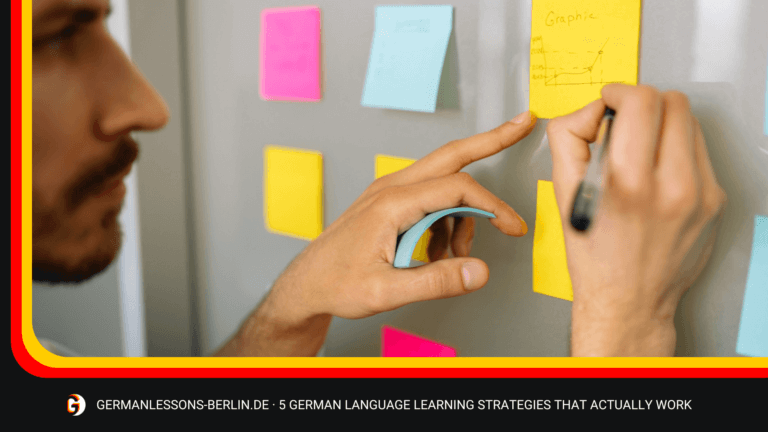If you’re looking for a new approach to language learning, then it’s time to try the gambler’s guide. Betting strategies can increase your progress and motivate you throughout the learning journey.
As an expert in language acquisition, I’ve seen countless students struggle with traditional methods of studying vocabulary lists and grammar rules. However, by incorporating betting techniques into their practice routine, they’ve made significant strides in their proficiency.
The key is recognizing that gambling has much more to do with psychology than chance. By understanding how our brains respond to risk-taking behavior, we can apply those same principles to learning languages effectively.
This article will explore specific betting strategies proven successful in language acquisition, such as setting realistic goals, rewarding yourself when you achieve them, and challenging yourself with high-stakes wagers.
With these insights at your disposal, you’ll be well on your way to becoming fluent faster than ever before.
Table of Contents
The Psychology Of Risk-Taking
Welcome to the gamblers’ guide to language learning! This first section will explore the psychology of risk-taking and how it relates to language learning.
One of the most critical aspects of gambling is risk tolerance, which refers to an individual’s willingness to take risks when faced with uncertain outcomes. Similarly, language learners often face a high degree of uncertainty in their decision-making processes.
Decision-making under uncertainty can be daunting for many individuals as there are no clear-cut answers or guarantees. However, successful gamblers and language learners understand that calculated risks can lead to significant rewards.
By developing a healthy level of risk tolerance and embracing uncertainty, you open yourself up to opportunities for faster progress in your language learning journey. In the next section, we will explore setting realistic goals that align with your risk tolerance and help you succeed.
Setting Realistic Goals
One of the keys to successful language learning is setting realistic goals. This involves breaking down objectives into achievable steps that can be measured accurately. By doing so, you will not only stay motivated but also have a clear understanding of your progress.
When setting goals, it’s essential to consider your current level and how much time you have to study. For example, if you’re starting from scratch, it may not be realistic to expect fluency within a month. Instead, set smaller goals, such as mastering basic grammar or building vocabulary in specific areas. Make sure these goals are measurable using tools like flashcards or quizzes to track progress over time.
Remember that achieving small milestones can lead to significant achievements in the long run!
As you work towards your language learning goals, measure progress accurately by keeping track of what you’ve accomplished and where you need improvement. Celebrate each milestone along the way — whether completing a challenging lesson or engaging with a native speaker — as this positive reinforcement will help motivate you on your journey toward fluency.
The following section will discuss ways to reward yourself for progress without losing momentum toward reaching your ultimate language learning goal.
Rewarding Yourself For Progress
Rewarding Yourself for Progress:
Learning a new language is an exciting journey full of celebratory milestones. Whether you’ve finally mastered the grammatical rules or can hold a conversation with a native speaker, it’s crucial to acknowledge these accomplishments and give yourself effective incentives that will motivate you to continue your learning journey.
Effective incentives vary from person to person, but they should inspire and drive you toward achieving your language goals. It could be as simple as rewarding yourself with your favorite food or watching your favorite movie in the target language after completing a challenging lesson.
Whatever motivates you to keep going on this challenging yet fulfilling path is what counts. Remember, celebrating small victories along the way is just as important as reaching the end goal!
As language learners progress further into their studies, high-stakes challenges may arise. These obstacles require not only determination but also strategic planning and execution. In the next section, we’ll discuss how betting strategies can help prepare learners for such situations and maximize their chances of success.
High Stakes Challenges
For those who want to kick their language learning up a notch, high-stakes challenges can provide motivation and immersion.
Immersive experiences like studying abroad or participating in cultural exchange programs allow learners to immerse themselves in the target language and culture fully. By living with native speakers and using the language daily for practical purposes, learners are forced to adapt quickly and learn more efficiently.
Another way to create a high-stakes challenge is by setting specific goals that require mastery of the language. For example, signing up for an advanced-level course or attending job interviews conducted entirely in the target language creates a sense of urgency and importance.
This type of pressure can be overwhelming for some, but it also forces learners out of their comfort zones and into accelerated progress toward fluency.
Applying Betting Strategies To Language Learning
As a language learning expert, I have discovered that applying betting strategies can be highly effective for achieving faster progress.
One key strategy is participating in language exchange programs, where you can practice speaking with native speakers and receive feedback on your pronunciation and grammar. By placing a bet on yourself to improve each time you engage in these conversations, you create an incentive to listen and learn from your conversation partner actively. This technique of coincidence also allows for a more immersive experience, allowing you to pick up new vocabulary naturally through context.
Another way to apply betting strategies is by creating challenges for yourself based on vocabulary acquisition. For example, you could list ten words or phrases each day that you want to learn and bet on how many of them you will successfully use in conversation or writing within the next 24 hours. This motivates you to seek out opportunities to use the new vocabulary actively and reinforces what you have learned through repetition.
With this method, even if you don’t win every bet, putting effort into your learning process helps solidify the information in your memory.
By incorporating these techniques into your language learning journey, you can effectively speed up your progress while making it fun and engaging at the same time.
Language exchange programs allow for the real-life application of skills, while vocabulary betting turns memorization into an exciting challenge rather than a tedious task. So why not give it a try? You might surprise yourself with how quickly you can improve!
Frequently Asked Questions
What Specific Betting Strategies Should I Use For Language Learning?
To achieve faster progress in language learning, it’s essential to set clear goals and track your progress.
One effective betting strategy is to make a wager with yourself, such as studying for an extra hour if you don’t meet your daily goal. This creates accountability measures that motivate you to stick to your plan.
Another technique is to use motivational tools, like creating a vision board or finding a language exchange partner who shares similar goals.
By incorporating these techniques into your routine, you’ll be more likely to succeed in achieving fluency in the target language.
Is It Necessary To Gamble Real Money To Use These Strategies?
It is optional to gamble real money to use betting strategies for language learning.
Instead, one can reap the benefits of simulation and alternative rewards.
By simulating a gambling environment without risking actual funds, learners can still apply these same strategies and experience similar levels of motivation and engagement.
Alternative rewards such as badges or points can also provide a sense of accomplishment and progress, further incentivizing continued language study.
As a language learning expert, I recommend exploring these options for those seeking efficient and enjoyable ways to improve their linguistic abilities.
How Do I Know When It’s Time To Increase The Stakes In My Language Learning?
Knowing when to increase your language learning stakes can be daunting, but fear not! As a language learning expert, tracking progress and measuring language proficiency are two key indicators that it may be time to ramp up the intensity.
Don’t hesitate to use hyperbole to create an engaging rhythm and flow — after all, we’re discussing mastering a new language here! By incorporating betting strategies into your learning routine, you’ll have the tools you need to know when it’s time to take things up a notch.
So don’t hold back — push yourself out of your comfort zone and watch your language skills soar!
Are There Any Potential Negative Consequences Of Using Betting Strategies For Language Learning?
Before diving into the potential downsides of using betting strategies for language learning, it’s important to note that these methods can be effective when used correctly. However, there are risks involved in relying on chance and luck to progress your studies.
One strategy for mitigating these risks is to set clear goals and limits for yourself before starting any wagering.
Additionally, it’s crucial to have a solid foundation of language knowledge before attempting more advanced or risky techniques.
By being mindful of the potential negative consequences and taking steps to prevent them, you can still utilize betting strategies as an additional tool in your language-learning journey.
How Do I Balance The Excitement Of Gambling With The Discipline Required For Effective Language Learning?
When it comes to language learning, finding motivation and discipline are key. However, incorporating excitement into the process can also be beneficial. The challenge is balancing these two elements in a way that ensures consistency in your approach.
As a language learning expert, I recommend setting realistic goals and creating a structured plan for achieving them. This will help you stay focused and on track while allowing room for fun and excitement.
Additionally, using betting strategies can add an extra layer of motivation. Still, it’s essential to use them wisely and not let them distract you from your ultimate goal of mastering the language.
By striking this balance between discipline and excitement, you’ll be well on your way to faster progress in your language learning journey.
Conclusion
In conclusion, betting strategies can be a fun and effective way to accelerate your language learning progress. You’ll stay motivated and engaged by setting achievable goals and rewarding yourself for reaching them.
However, it’s important to remember that gambling should never take priority over discipline and consistency in your language practice. Don’t let the thrill of placing bets overshadow the importance of putting in regular study time.
As a language learning expert, I encourage you to experiment with different methods to find the best.
Whether you choose to incorporate betting into your routine or not, remember that success ultimately comes down to dedication and hard work – so keep pushing yourself toward fluency!
As they say, ‘Rome wasn’t built in a day’ – but with determination and persistence, you can achieve your language goals faster than you ever thought possible.




